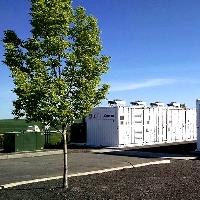(EINDHOVEN) – The European Investment Bank confirmed at a meeting of the European Battery Alliance Tuesday that it expects to increase backing of battery-related projects to more than EUR 1 bn of financing in 2020.
At the meeting, EIB Vice-President Andrew McDowell confirmed the Banks commitment to supporting a strong, independent European battery industry.
The Bank says it expects to increase its backing of battery-related projects to more than EUR 1 billion of financing in 2020.
The production capacity of EIB lithium ion battery cells projects – both those already approved or signed and those under appraisal stands at 51 GWh. This compares to a current annual production capacity of 49 GWh in the EU (US: 49 GWh; China: 447 GWh). In addition, the EIB finances the development of new materials, improved battery management systems and battery recycling.
The Covid-19 crisis has highlighted Europes vulnerability to interruptions in the supply of critical materials and technologies. As the green energy transition accelerates, creating a European battery industry is vital to protect Europes competitive position in the world economy, said the EIB Vice-President in charge of energy, Andrew McDowell.
State-of-the-art batteries are seen as being at the heart of Europes green transition, and already contributing to the decarbonisation of the EU economy. They hold key solutions for low-carbon technologies such as electric vehicles.
The EUs entire battery industry employs more than 30,000 people across 14 countries. Further developing an independent European battery ecosystem would allow the Union to play an important role in a market which is projected to grow to EUR 250 billion/year by 2025. Additionally, a secure local battery capacity would boost the European automotive industry and safeguard thousands of jobs.
However, battery energy storage in Europe still in the early phases of its development is facing challenges in manufacturing, shipping, and R&D due to the economic fall-out of the Coronavirus pandemic.
Critical battery components are manufactured in China, either by domestic or international producers, and car makers in Europe suffer from severe disruptions to their supply chain.
As a consequence, European car manufacturers had to lower their production already before the COVID-19 crisis hit Europe because they ran short in supplies of battery cells.


